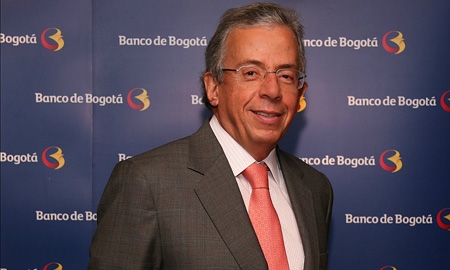After aggressive financial reform in the late 1990s, Colombia has emerged with one of the most stable and robust finance sectors in Latin America, enjoying significant growth while other major international fiscal players are struggling, affected gravely by the world economic crisis.
“The contrast is evident,” says Colombian President Juan Manuel Santos in a statement to local media. “While in Europe and the United States, banks and the financial sector are desperately trying to rebuild themselves and save the business, in Colombia the banking sector is solid, buoyant and producing profits and high-quality assets.”
Colombia has seen persistent economic growth with an average of 5.5 per cent in GDP annually. Although not a particularly large country compared to some of the other nations in the region, its banking sector has flourished – with a total of 17 commercial banks, of which seven are foreign owned – due largely in part to consolidation and privatisation that took place in the early 2000s. Before the end of this year, four financing companies with operations in the country are also expected to become registered banks, among them Serfinansa, an expert in retail financial services, and Macrofinanciera, specialising in consumer loans.
The growth of these financing companies reflects the rise in consumer lending, which is up 24.8 per cent, totaling $631 million (€482 million) in January and February compared to $561 million during the same period last year. Much of this funding is allocated to small and medium-sized enterprises, one of the main engines of the country’s economy.
Additionally, Colombia is a member of the Latin American Integrated Market (MILA), whose other two members, Chile and Peru, are some of the most successful and open markets in the region, along with Colombia. MILA allows the countries’ economies to easily work together, diversifying their markets and making both local and foreign investment safer and more profitable. Recently an agreement was signed between the three member countries and the newest prospective member, Mexico, which is expected to further integrate the Latin American markets.
With many countries worldwide looking for emerging investment opportunities, Colombia is quickly becoming one of the most sought after, having high profit margins and a positive growth outlook.
"We would love it if German banks would establish themselves directly in Colombia." Alejandro Figueroa, President of Banco de Bogotá |
“Foreign investment is welcome and must play a fundamental role,” explains Alejandro Figueroa, President of Banco de Bogotá, one of Colombia’s most successful banks totaling 68.8 billion Colombian pesos (€29.2 million) in assets. He adds that Germany is considered one of the more desirable international investors, in part because of its high level of technology, and that the free trade agreement set to go into effect this year will be “indubitably positive” for the economic relations between the two countries.
“We would love it if German banks would establish themselves directly in Colombia,” says Mr Figueroa.
He notes that although investing in Colombia’s banking sector around the world will highly contribute to continued growth, the country conversely needs to manage the current wealth by investing in social projects such as education so as to foment the creation of human capital. In fact, Banco de Bogotá is responsible for the Financial Education For Life programme, which holds training sessions in personal economics in some of the most remote areas of the country, educating more than 14,400 people per year.
Besides foreign investments, some of Colombia’s most prominent local banks are also beginning to expand throughout the region. The country’s third largest bank, Davivienda purchased HSBC’s subsidiaries in Costa Rica, El Salvador and Honduras in January for $801 million. Furthermore, Banco de Bogotá is considered to be one of the most internationally successful banks with a presence in more than 10 countries.
Locally, Banco de Bogotá holds 17.6 per cent of Colombia’s commercial portfolio and 9.3 per cent of the consumer portfolio.
According to Mr Figueroa, one of the main roles of the bank is to encourage savings, which is done through incentive programmes. He notes that during the positive economic moments it is important for the country to save as well as invest in things such as schools, roads, machinery and technology to generate a higher standard of living for the country in the future.
“The banking sector serves as a vehicle for economic growth because we are the intermediaries between the savings of the community and its productive projects,” affirms Mr Figueroa. “In Latin America, thanks to the experience that we have had with past crises, we have become wiser. This has brought us to today where our financial systems are very strong and solid.”

2 COMMENTS
I'm sure the FTA between EU & Colombia will speed up a little the cooperation in this sector..
I reckon there needs to be more diversification.. the country may be overexposed to oil&gas market fluctuations..